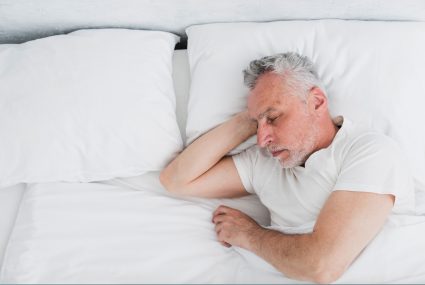Insomnia is defined as difficulty falling asleep, or staying asleep for an appropriate amount of time. While it’s normal to have a rough night of sleep every now and then, when it becomes a more regular occurrence, it can lead to much bigger problems. Doctors consider insomnia to be chronic if it occurs at least 3 nights per week, for a month or longer.
What are the symptoms of insomnia?
There are two main types of insomnia: sleep onset (difficulty falling asleep) and sleep maintenance (difficulty staying asleep). Symptoms of insomnia can be felt both at night and during the daytime, so it’s important to recognize the difference between feeling a bit tired on occasion and the more severe symptoms of insomnia.
Your loved one may have insomnia if they:
- Take longer than usual to fall asleep (more than 35-45 minutes)
- Have trouble staying asleep (repeatedly waking up during the night)
- Wake up early, and are unable to fall back asleep
- Suffer from depression
- Have fallen down at night
- Feel drowsy, tired or exhausted during the day
- Complain of being up all night
- Are irritable
- Experience impaired memory
- Have difficulty with concentration
Insomnia can often be tricky to recognize at first, since many of its symptoms could also be associated with other conditions. If you suspect that your loved one has insomnia, watch out for combinations of these symptoms.
What causes insomnia in seniors?
Insomnia can be the result of many factors and can occur in people of all ages. However, seniors are particularly susceptible. Let’s take a look at some of the most common causes of insomnia in seniors.
Stress and anxiety: Many seniors experience stress and anxiety related to life changes, health conditions, and other situations that can cause worry.
Irregular sleep schedules: After retirement, many seniors don’t stick to a daily routine. This can lead to disruptions in normal sleep patterns.
Too much caffeine: An afternoon cup of coffee or a cup of black tea in the evening might seem like a good idea, but can keep you awake at night as the caffeine works its way through your system.
Drinking alcohol: Lots of people think that a drink before bed is a good way to combat insomnia, but the opposite is true. While alcohol initially makes you sleepy, it eventually messes up your sleep cycles, which can cause you to have a restless sleep. Even just a glass of wine at night can keep you awake.
Health conditions: a number of health conditions can cause sleep problems. Depression, restless leg syndrome, pain, and more.
Treatment of insomnia
If you suspect that your loved one has insomnia, the best thing to do is speak to your doctor. The treatment plans can be wildly different depending on the underlying causes of insomnia, so it’s best to get the condition properly diagnosed by a doctor.
There are some at-home practices you can try that do not involve supplements or over the counter remedies, such as the establishment of a consistent bedtime routine and practicing good sleep hygiene. This means setting up the bedroom to create the most comfortable sleep environment possible, and avoiding any stimulating activities an hour before bed.

Comments